Ideally the first dose is given within 24 hours of birth but kids not previously immunized can get it at any age. If they are not given on the same day they should be separated by a minimum 4-week interval because the immune response to one of the vaccines might be impaired.
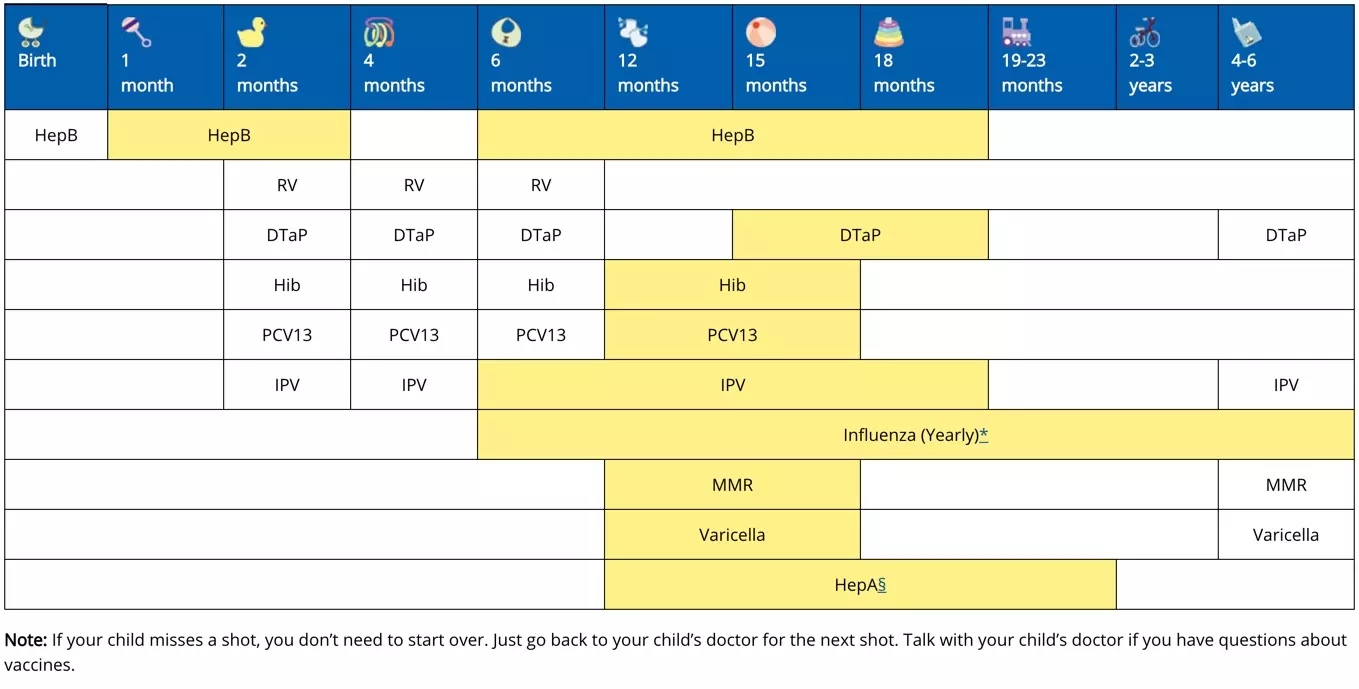 Baby Shots Sleep Plus Comfort Tips And Immunization Schedules
Baby Shots Sleep Plus Comfort Tips And Immunization Schedules
17 hours agoMay 4 UPI --Drugmaker Pfizer said Tuesday it earned 35 billion from sales of its COVID-19 vaccine in the first three months of 2021 and.
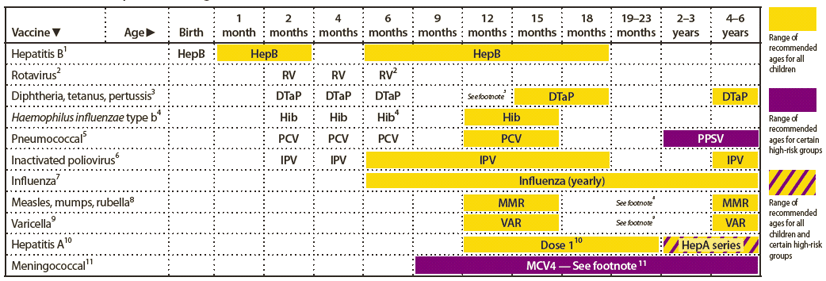
One month vaccines. Checkups are a good time to ask questions about vaccines feeding sleep development and. Three-year-old Eloise Lacour is a COVID-fighting trailblazer because shes one of the 144 children enrolled in one phase of Pfizer-s trial of the vaccine. Rotavirus which can lead to.
The next doses are given to babies at 4 months 6 months and then between 12 and 15 months. In this section youll find information about vaccine schedules. Vaccine schedules tell you which vaccines you and your family need and when to get them.
The next one will be when he or she is about two months old. Starting at 1 to 2 months of age your baby receives the following vaccines to develop immunity from potentially harmful diseases. Your baby needs regular checkups during the first year.
The second dose administered a few weeks later boosts antibody levels to. Diphtheria tetanus and whooping cough pertussis DTaP 3 rd dose Haemophilus influenzae type b disease Hib 3 rd dose Polio IPV 3 rd dose Pneumococcal disease PCV13 3 rd dose Rotavirus RV 3 rd dose Influenza Flu every year Full Vaccine Schedule. As a general rule infants or children who are more than 1 month or 1 dose behind schedule should be on an accelerated schedule which means the intervals between doses should be reduced to the minimum allowable.
Vaccine schedules are organized by age. At 1 month of age HepB 1-2 months At 2 months of age HepB 1-2 months DTaP PCV Hib Polio and RV At 4 months of age DTaP PCV Hib Polio and RV At 6 months of age HepB 6-18 months DTaP PCV Hib Polio 6-18 months RV and Influenza yearly 6 months through 18 years At 12 months of age MMR 12-15 months PCV 12-15 months. Immunizations at 1 Month.
Some low birth weight infants will get it at 1 month or when theyre discharged from the hospital. Age 6 months if needed depending on the vaccine manufacturer of the previous doses. The PCV13 or pneumococcal conjugate vaccine protects against 13 strains of the bacteria.
Protect your baby by providing immunity early in life. The first dose of these mRNA vaccines trains the immune system to recognize and attack the spike protein on the surface of SARS-CoV-2 the virus that causes COVID-19. For example there are vaccine schedules for.
2 Live Vaccines Live vaccines can be given on the same day. Regular visits to the doctor help keep your baby healthy and you informed. For the millions of Americans now eligible to receive the Pfizer or Moderna COVID-19 vaccines its recommended that everyone get two shots.
DNA is more stable and lasts longer than mRNA which is evidenced by strengthening of the immune response for one to two months after vaccination. Adenovirus-based vaccines deliver DNA to the nucleus of the cell which is used to make mRNA that serves as a blueprint for making the protein. For 26 months and Pfizer is.
Some of the common side effects of this vaccine are. Vaccines help protect you from serious infectious diseases throughout your life from infancy to early adulthood and into old age. Chickenpox Varicella 1 st dose Diphtheria tetanus and whooping cough pertussis DTaP 4 th dose Haemophilus influenzae type b disease Hib 4 th dose Measles mumps and rubella MMR 1 st dose Polio IPV 3 rd dose Pneumococcal disease PCV13 4 th dose Hepatitis A HepA 1 st dose Hepatitis B HepB 3 rd dose between 6 months and 18 months.
Your babys checkups are important. Hepatitis B 2nd dose Diphtheria tetanus and whooping cough pertussis DTaP Haemophilus influenzae type b Hib Polio IPV Pneumococcal PCV Rotavirus RV. According to the CDC the first dose of PCV13 vaccine should be given to babies at 2 months old.
Diphtheria-tetanus-acellular pertussis DTaP-15 2 months 6 weeks 8 weeks 4 weeks DTaP-2 4 months 10 weeks 8 weeks 4 weeks DTaP-3 6 months 14 weeks 6-12 months6 6 months6 DTaP-4 15-18 months 15 months6 3 years 6 months DTaP-57 4-6 years 4 years Haemophilus influenzae type b Hib-18 2 months 6 weeks 8 weeks 4 weeks Hib-2 4 months 10 weeks 8 weeks 4 weeks. Intervals between Live Vaccines and Other Rules All vaccines can be administered simultaneously on the same day.
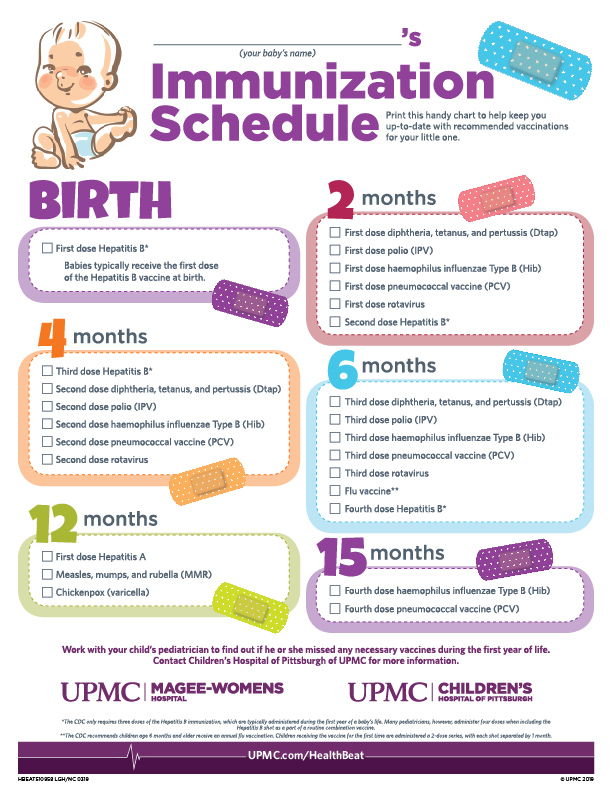 Vaccinations For Babies Upmc Healthbeat
Vaccinations For Babies Upmc Healthbeat
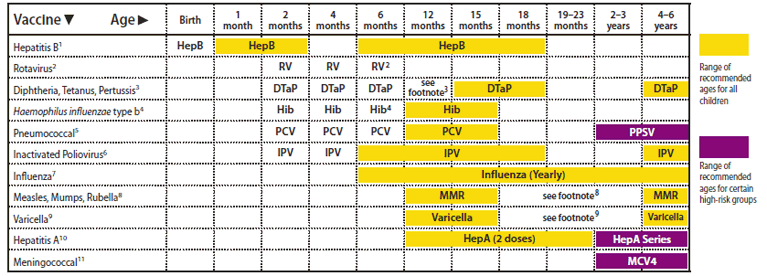 Recommended Immunization Schedules For Persons Aged 0 Through 18 Years United States 2011
Recommended Immunization Schedules For Persons Aged 0 Through 18 Years United States 2011
Https Www Who Int Immunization Policy Immunization Routine Table2 Pdf
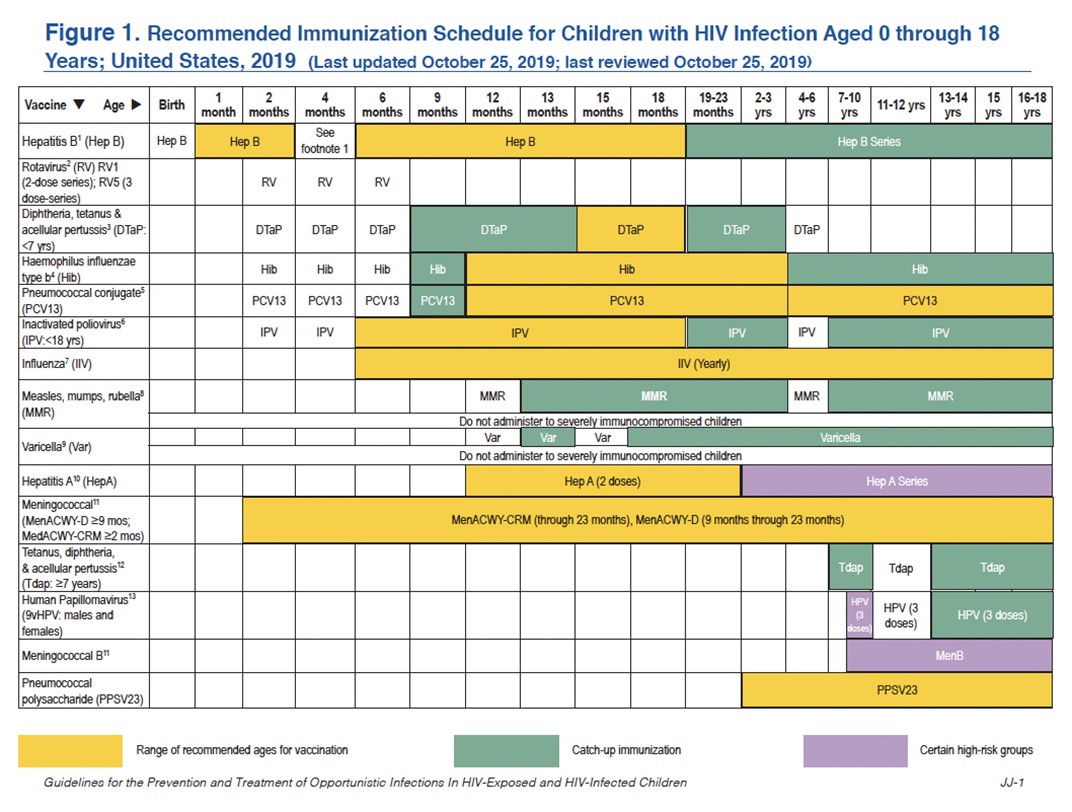 Figure 1 Recommended Immunization Schedule For Children With Hiv Infection Aged 0 Through 18 Years United States 2019 Nih
Figure 1 Recommended Immunization Schedule For Children With Hiv Infection Aged 0 Through 18 Years United States 2019 Nih
 Baby Vaccines At 1 2 Months Cdc
Baby Vaccines At 1 2 Months Cdc
 Recommended Immunization Schedules For Persons Aged 0 Through 18 Years United States 2012
Recommended Immunization Schedules For Persons Aged 0 Through 18 Years United States 2012
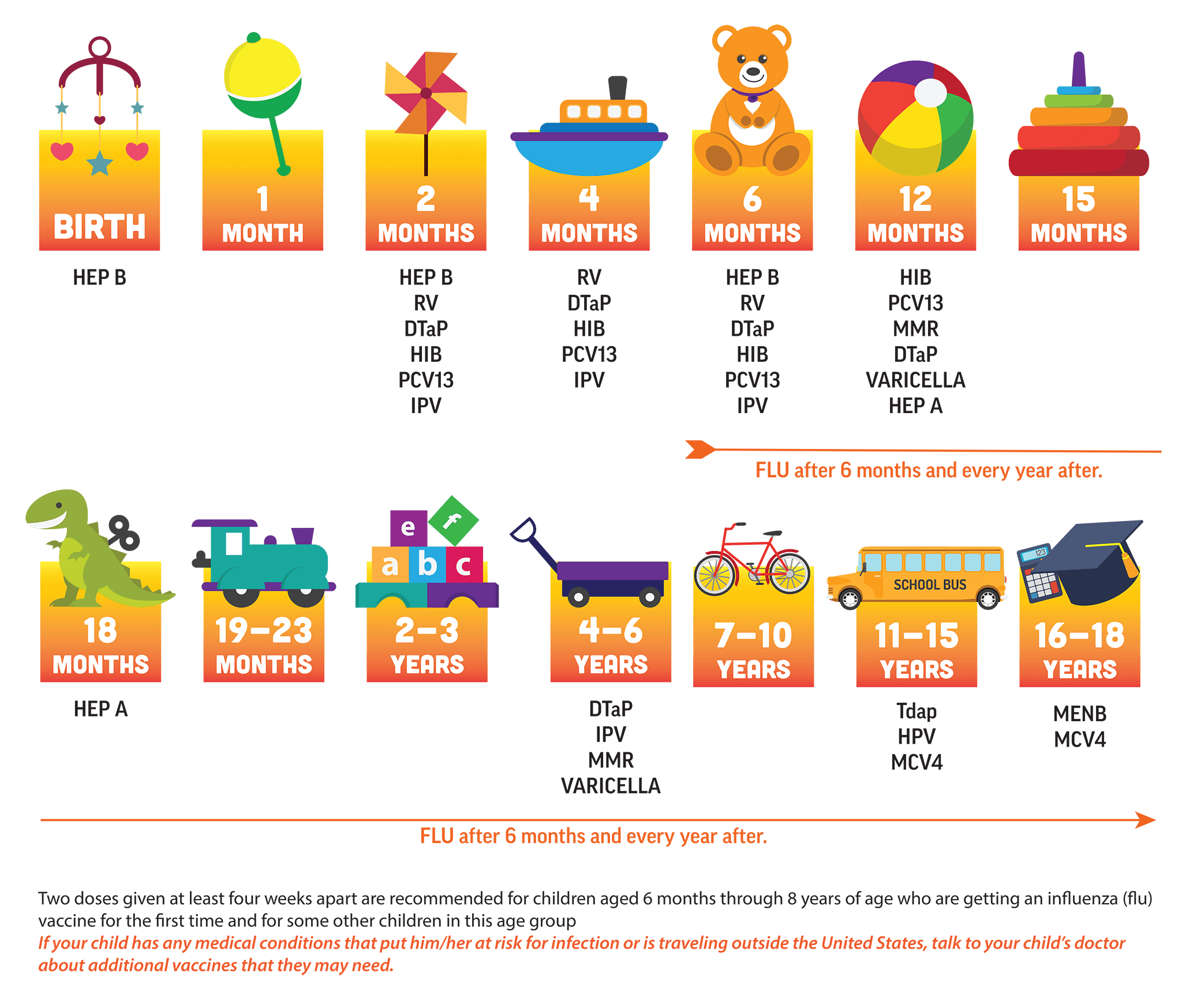 Infant And Child Vaccine Schedule Super Shot
Infant And Child Vaccine Schedule Super Shot
Immunization Central Florida Pediatrics Pediatrics For Family Health
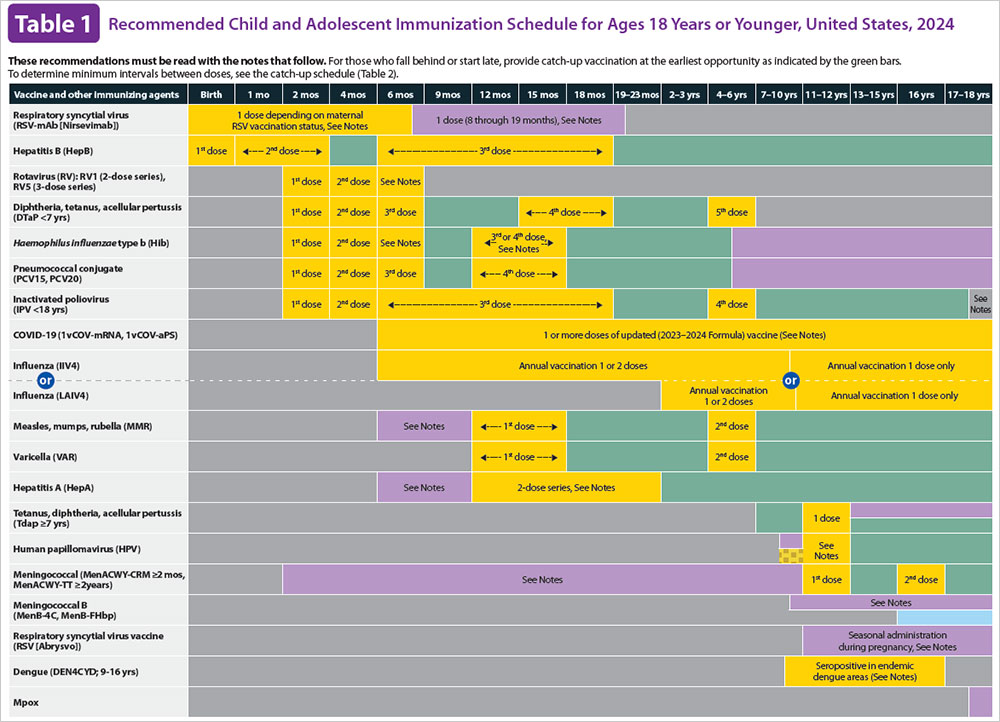 Birth 18 Years Immunization Schedule Cdc
Birth 18 Years Immunization Schedule Cdc
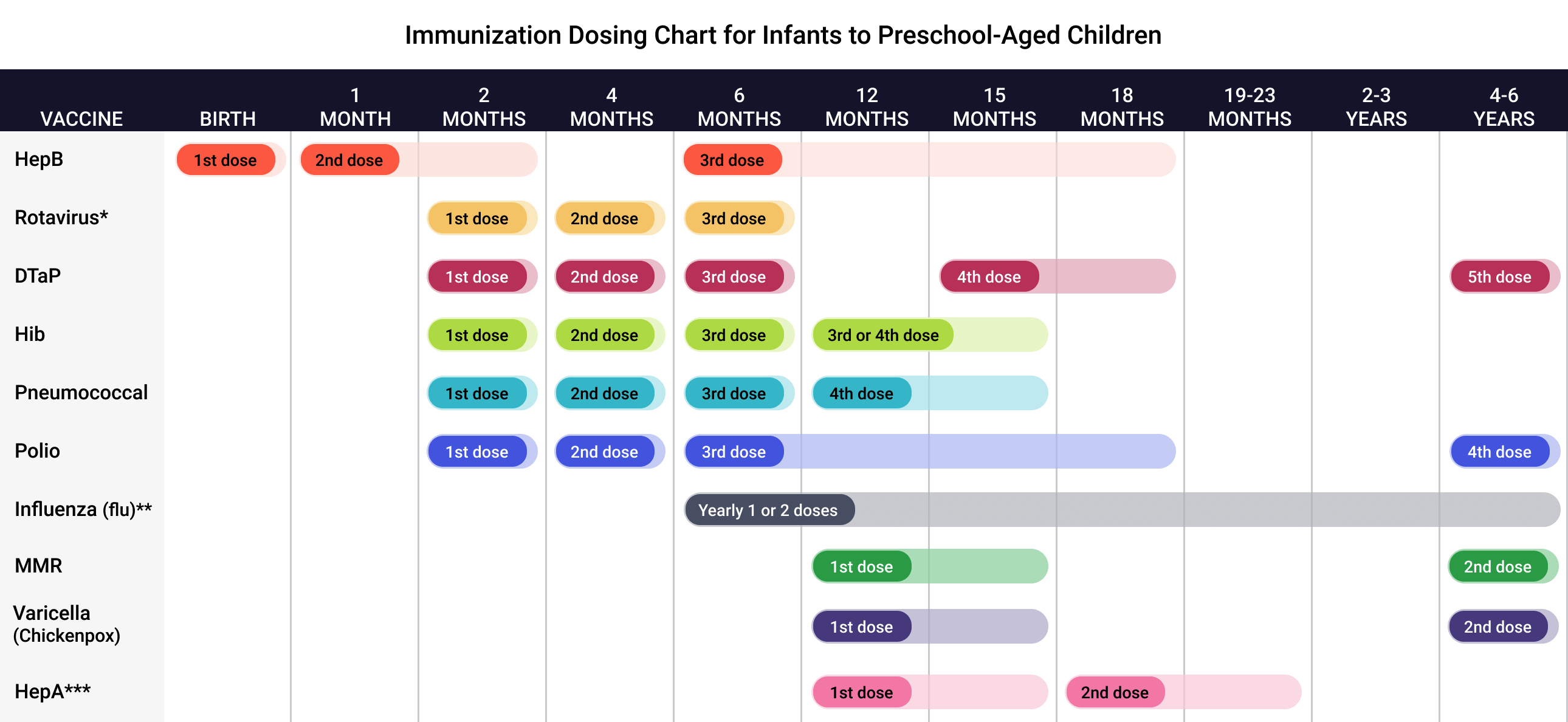 Vaccine Schedule Recommend Vaccines For Children Adults
Vaccine Schedule Recommend Vaccines For Children Adults
 Recommended Immunization Schedules For Persons Aged 0 Through 18 Years United States 2012
Recommended Immunization Schedules For Persons Aged 0 Through 18 Years United States 2012
 Childhood Vaccination Schedule Children S Health Issues Merck Manuals Consumer Version
Childhood Vaccination Schedule Children S Health Issues Merck Manuals Consumer Version
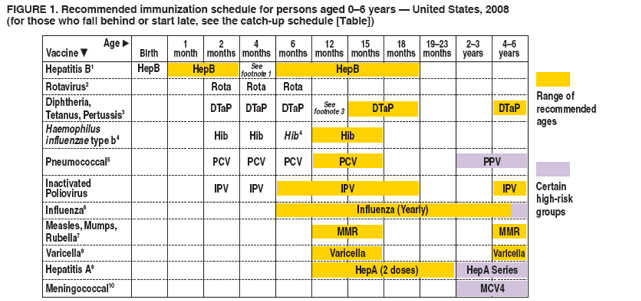 Recommended Immunization Schedules For Persons Aged 0 18 Years United States 2008
Recommended Immunization Schedules For Persons Aged 0 18 Years United States 2008
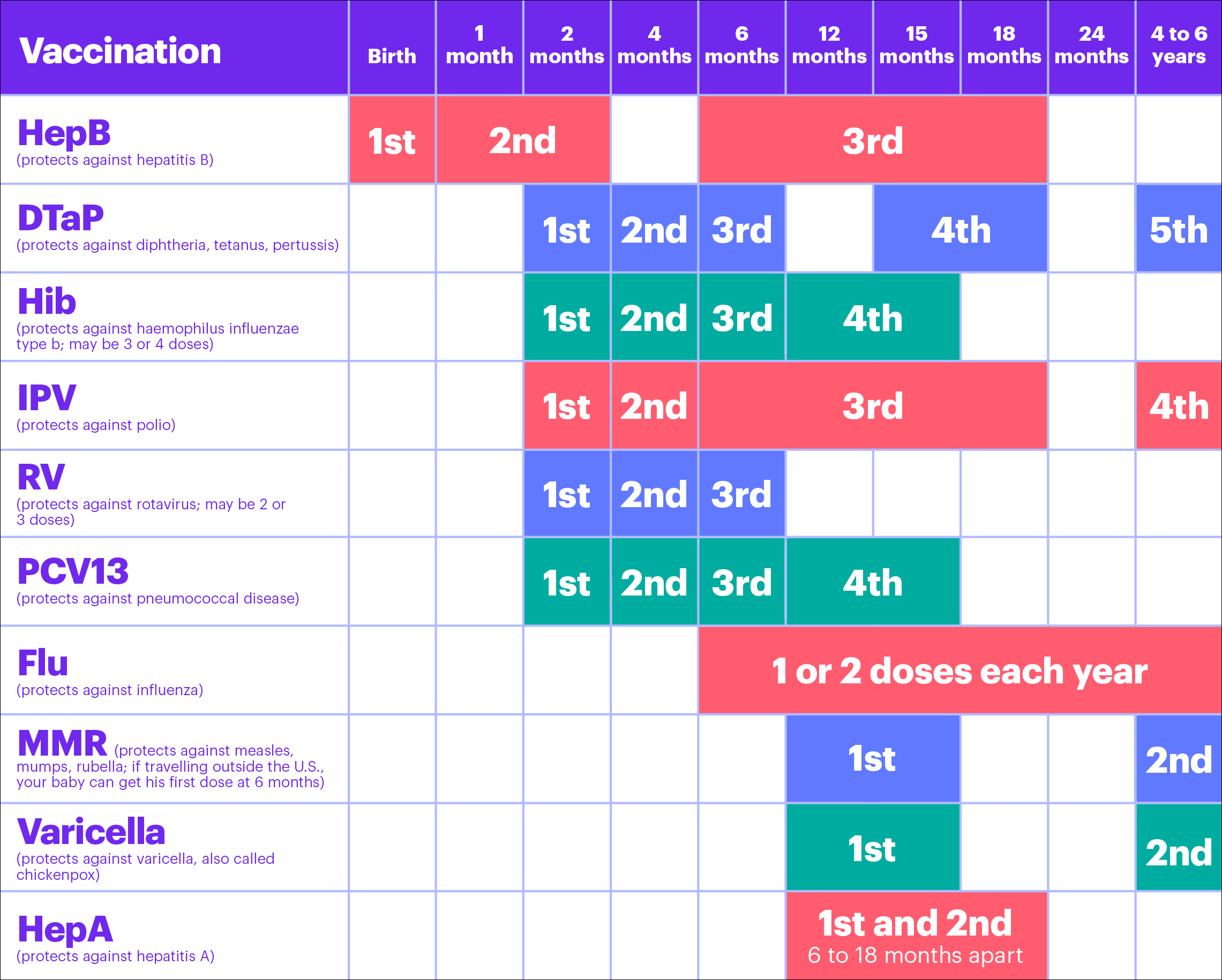

No comments:
Post a Comment
Note: Only a member of this blog may post a comment.